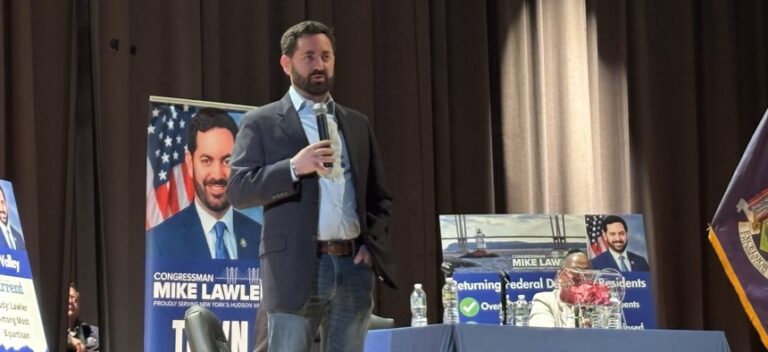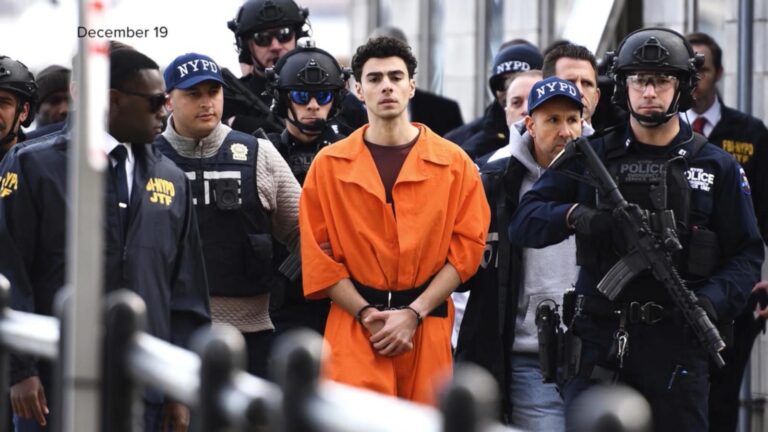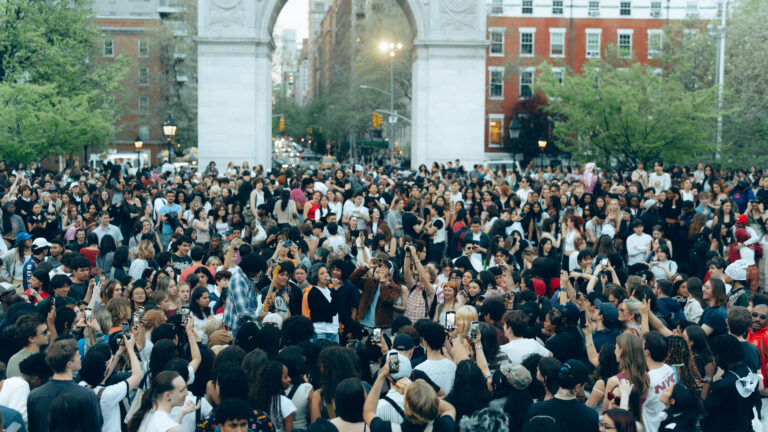On a recent Sunday afternoon, I waited in a small studio for my latest celebrity interview. Images of Harry Belafonte, Richard Roundtree, and Sidney Portier, men once known as the Black elite in Hollywood, were spread across the table. The selection of muses suited him well because Edwin Hodge is also a man who isn’t afraid to define himself.
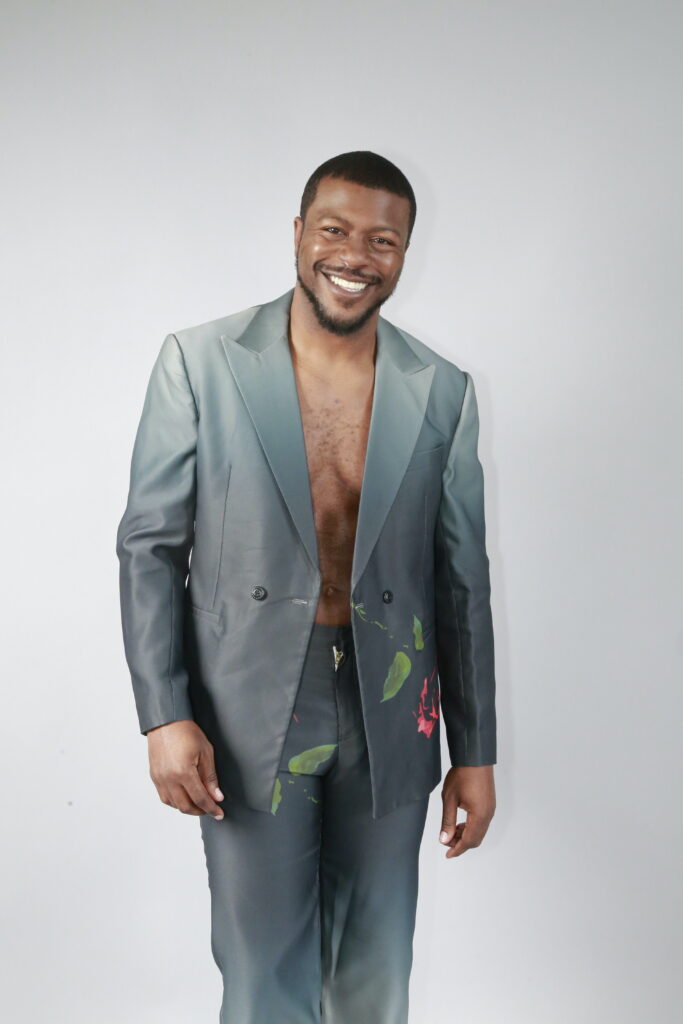
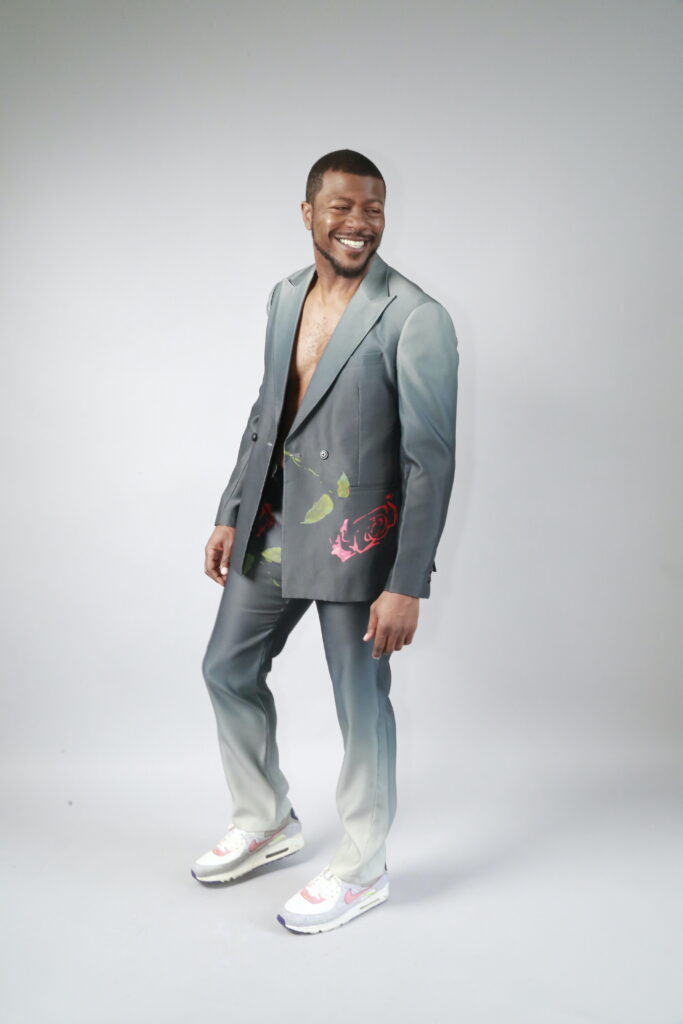
Hodge always knew he would be an actor. When he was three, he told his mother, his earliest and biggest supporter, that he wanted to be inside the box. His mother recognized something special in him and like most Black mothers I know, found a way to make it happen without any blueprint. Yolette Evangeline Richardson (because we’re going to say her name) got both her sons an agent, and before long Edwin and his brother Aldis were regulars on Sesame Street.
Hodge worked consistently since 1995. Maybe you recognize him from his role as Special Agent Ray Cannon on the CBS series FBI: Most Wanted or maybe as Dorian, a role he played opposite Chris Pratt (the guy from Guardians of the Galaxy) in Tomorrow Wars. The actor has starred in over 50 television and film roles and has done multiple stints on Broadway. He talks to me about the early days of his career and how doing the work shaped him. New media has made things much more accessible. A person can become an overnight sensation with one word, one act, one viral moment. For Hodge, this business is art. “You can step into it with skill and craft,” he says, “but you can’t step into it without foundation. You need a foundation to be successful in this industry.”
Cutting your teeth and developing your craft seems to be a lost art. Richard Roundtree worked with the Negro Ensemble Company for almost five years before landing his debut role as Shaft, and Sydney Poitier started at the American Negro Theater before his feature film No Way Out. Hodge loves acting, and he takes it seriously, it’s something I immediately admire about him.
Purpose comes up again when we talk about his role in FBI. “Sometimes I get a script, and it’s like—I get what you’re trying to say but this is a white woman trying to speak for a Black man, and that is not my tongue.” On the show, Hodge is fortunate to work with producers and writers who value his opinion. He talks about discussions with them regarding the direction of his character.
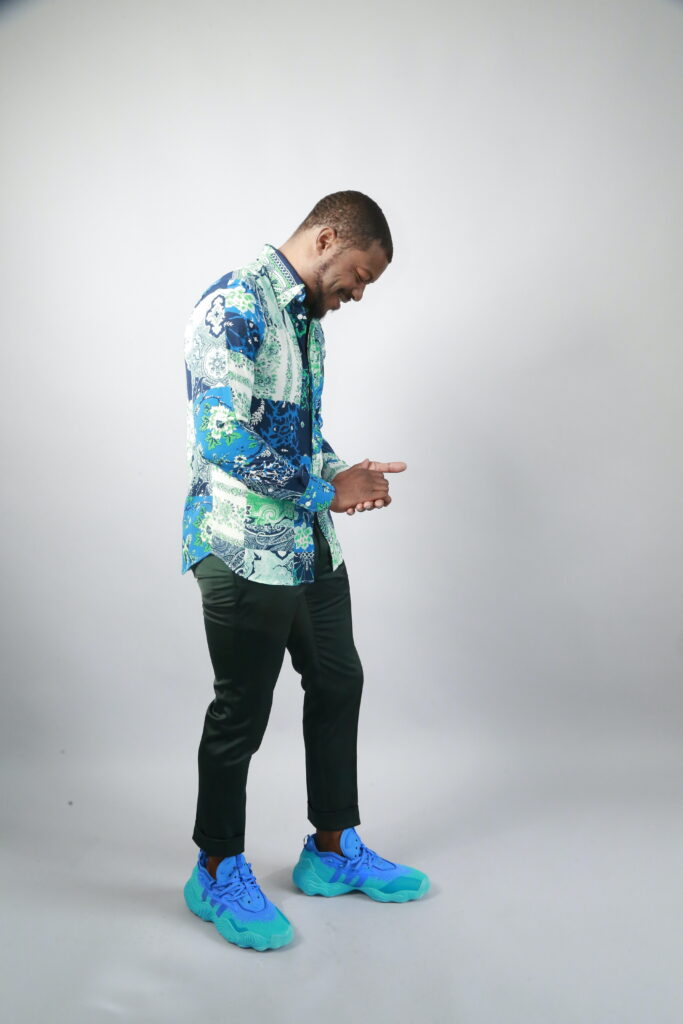
“I didn’t want to participate in telling another stereotypical Black story. His dad was there for him and taught him everything he needed to know. He has a profound respect for him, and that’s the story.”
The actor says he wanted to tell a bit of his story; and that story is that he grew up with love. Hodge’s relationship with his father was not without challenges, but they did have conversations and phone calls. There was love there.
He is quick to correct me about calling the environment a safe space.
It is safe but at the same time, there’s always a risk when you decide to take ownership of your craft and who you are as a person. Given the historic treatment of Black people by law enforcement, I asked Hodge if he grapples with playing his current role. “I don’t trust our justice system, and culturally we were raised not to trust them. My character is a law officer for a very specific reason, he wants to change the system,” Hodge says.
The only message he wants to put out there is one of change, of progressive storytelling. The work doesn’t have to be perfect and not everyone has to agree, but it must be purposeful.
Speaking of progressive storytelling, Edwin and his brother Aldis (yes, that one) released Parallel, a sci-fi thriller and the first film under their joint venture Hodge Brothers Productions, earlier this year. Their goal is to amplify the different types of stories that we get to tell as a culture. “We are more—people need to understand that, and this is our way of changing things.”
As a viewer, I am excited because the experience hits different when we control our own narrative. The Black experience, particularly in America, is very nuanced. Our joy, pain, and triumphs belong to us, and the responsibility to tell it the right also belongs to us.
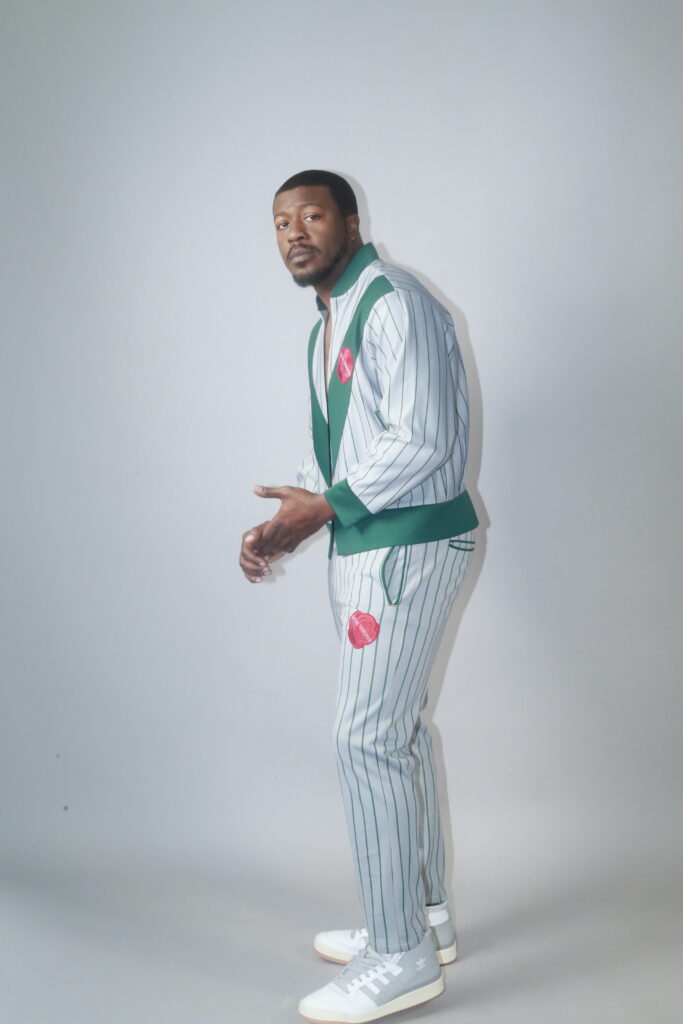
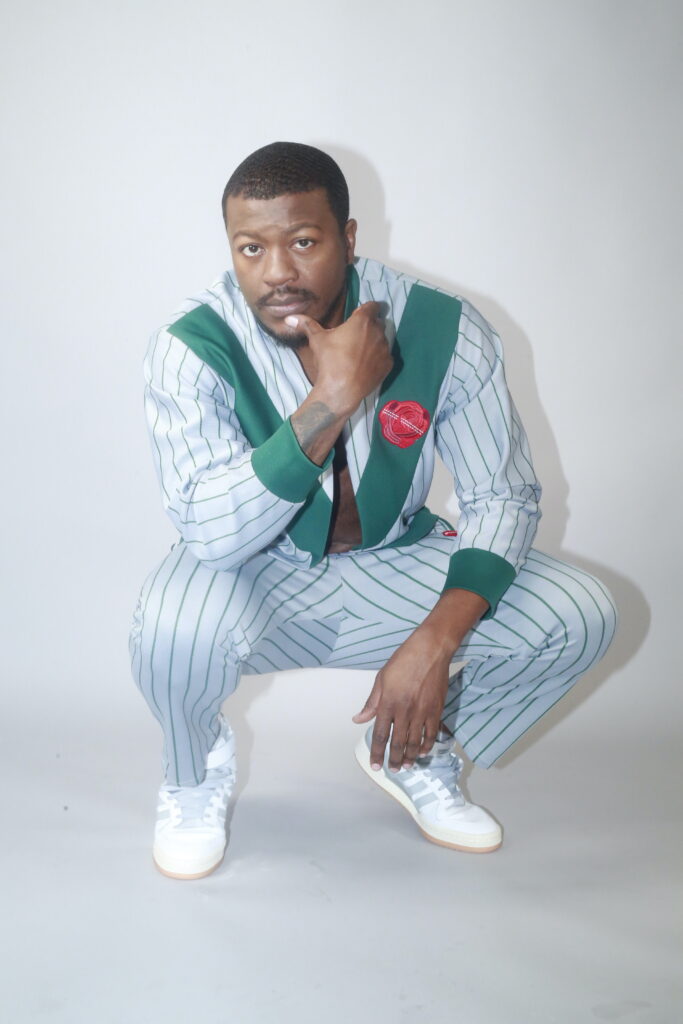
Hodge credits his intentionality to the women in his life, his mother, and his fiancé, actor Skye Marshall. Hodge speaks with emotion as he reflects on his mother’s unwavering support. She gave up her identity (she was a fashion show producer in NY) to ensure he and his brother made it to their auditions. The mother of three was a former Marine and fought through cancer and being homeless. Hodge says his mom also taught him how to love strong, and he sees so much of his mother in his life partner. Marshall (Black Lighting, Chilling Adventures of Sabrina) was in the Air Force and has that same unwavering strength. Marshall embodied the qualities Hodge wished his mother could see in herself, particularly her confidence and ability to recognize her power.
Hodge says, “I’ve never seen someone manifest something so quick – she has given me that warlock spirit.” Hodge said he came into their relationship while healing and was fortunate enough that Marshall was willing to assist him. “She’s changed my process of thought and given me the space to grow and be present in my flaws. It comes down to respect, it is listening, it is nurturing, and accepting change.”
Hodge spoke about his fiancée so openly, effortlessly, and tenderly. His favorite meal to cook for her is her favorite meal, a truffle rib eye with mashed potatoes and creamed spinach. “She’s always been a rib-eye girl so I learned to cook it how she likes it”. Black love has taken some blows recently, and listening to him talk about their love felt real and attainable.
Hodge feels a responsibility to protect the women he loves, and the responsibility extends to Black women in general. When asked about the wage gap and discrimination Black women face as actors in Hollywood brought front and center by Taraji earlier this year, Hodge proudly responds, “My girl makes more than me! ” We laugh, and there are collective snaps from everyone on set. All jokes aside, Black women in Hollywood face a unique set of challenges due to the intersections of all their identities. For Hodge, it’s simple “We have to pay the respect that’s due and elevate our black women”. He continues that he and his brother agreed to pay their Parallel costar, Danielle Deadwyler (Till, The Harder They Fall), a higher salary because she was the story. Parallel was about her and her journey. Women work just as hard, that is not up for debate, and some of us have the added responsibility of motherhood. Taking action and being intentional about paying a Black woman fairly and ensuring she has what she needs because she deserves it, should be the norm. It felt beyond refreshing to listen to a man get it – full stop.
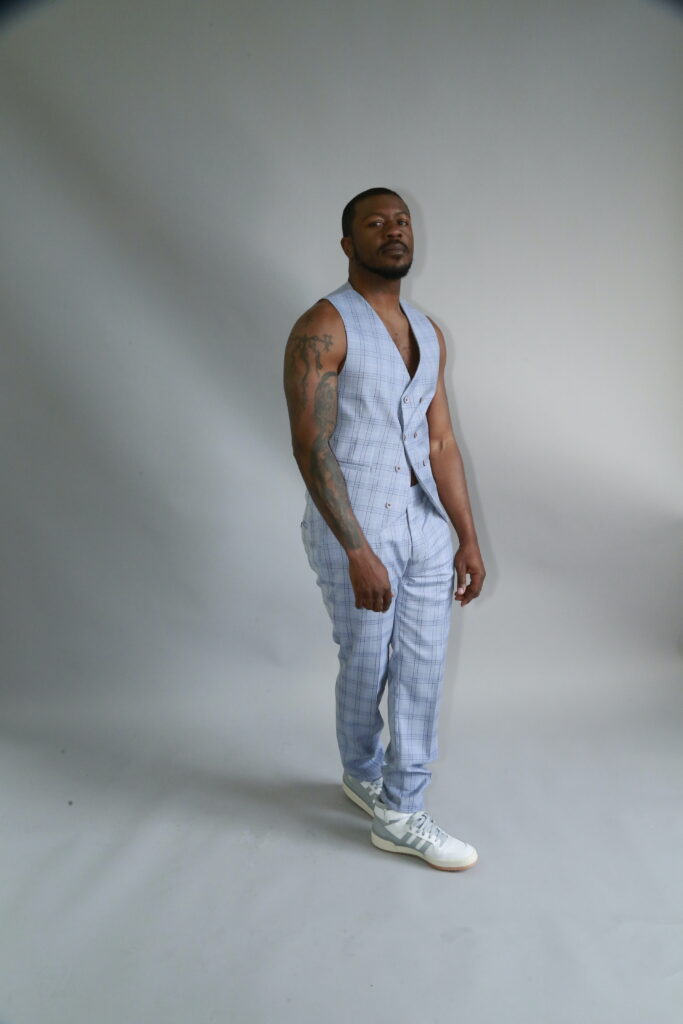
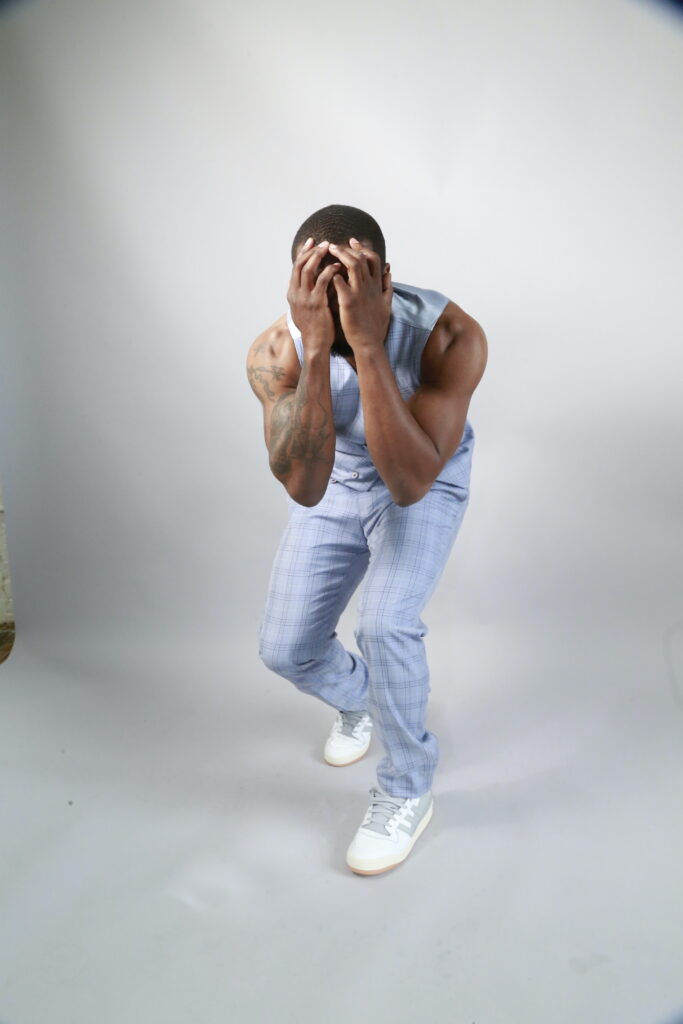
Before we wrapped, I had to get a style question in. I spotted a few pieces from Dreu Beckemberg on the wardrobe racks and wondered if Hodge had any style inspiration. He enjoys feeling comfortable and acknowledges that most of his wardrobe consists of sweatsuits. However, he is becoming more purposeful in his style choices as well. His most memorable fashion moment was a textured bright pink suit he wore to The Tomorrow Wars premiere. “I have another personality, but I wasn’t confident enough to let it out – now I know who I am.”
There is a movement of Black entertainers owning their identity. It feels more purposeful, like the reign of Belafonte, Roundtree, and Portier. When entertainers refused to let the world move forward without them. Putting their livelihoods and often their bodies on the line. Everyone has always wanted to buy into Black culture, to make money off our backs and our talent without any real investment, and to that Edwin Hodge says no thank you.
One more thing before I let you go—if you’re a sci-fi head like me, Parallel is a must-watch.
Creative Director: James R. Sanders, Photographer: Antonio Jefferson, Groomer: Gabriella Golan


